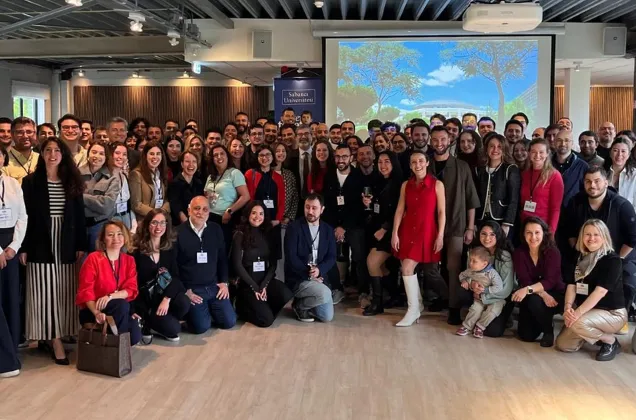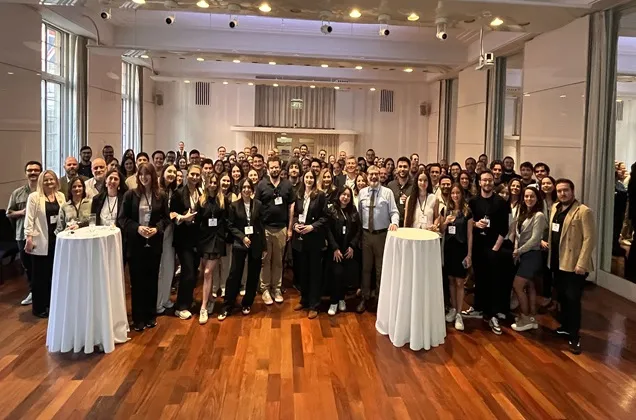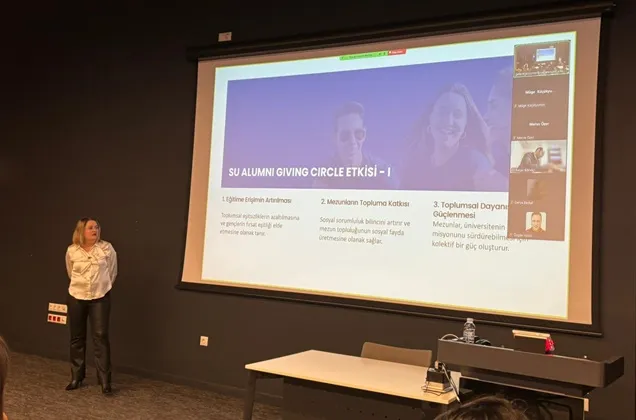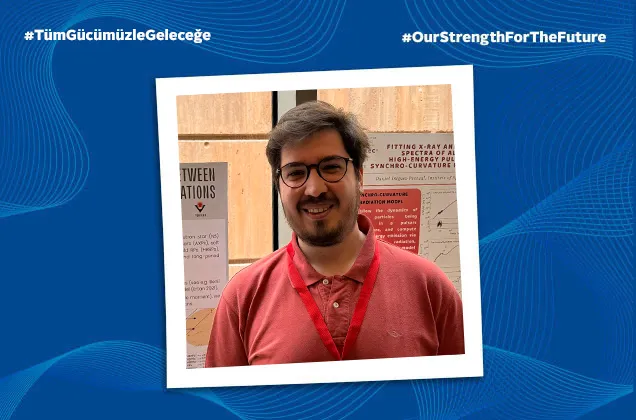26/11/2015
Biological Sciences and Bioengineering Program 2010 graduate Ceren Özek will be a member of the stem cell research team at the Harvard University Medical School Stem Cell Institute led by Dr. Lee Rubin to work on slowing the ageing process.
Biological Sciences and Bioengineering Program 2010 graduate Ceren Özek, who had received the International Obesity Society's Young Researcher award last year, will continue her studies in neuroscience at Harvard University. Ceren will be a member of the stem cell research team at the Harvard University Medical School Stem Cell Institute led by Dr. Lee Rubin to work on slowing the ageing process.
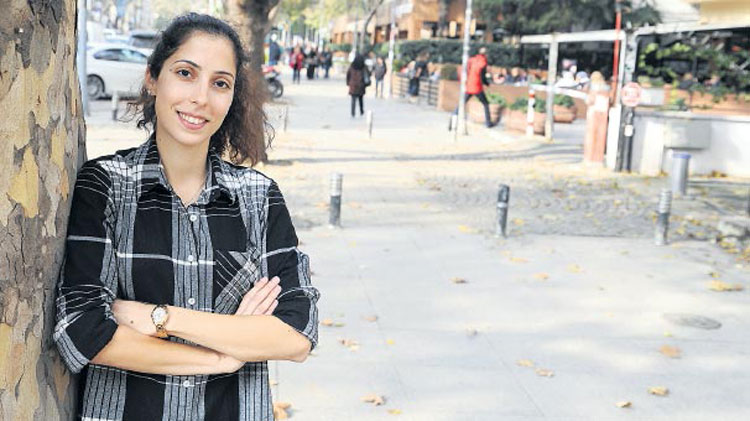
Ceren's story of joining two important scientific research teams in the United States despite her young age of 28 was extensively covered by the Milliyet daily. Ceren is the fourth generation of medical professionals in her family. She graduated from Robert College and went on to complete the Biological Sciences and Bioengineering Program at Sabancı University and receive her PhD in neuroscience from the University of Pennsylvania Medical School.
Ceren's postdoctoral studies focused on the proteins in the brain affected by the PTP1B enzyme, which is known to be correlated to obesity and diabetes.
Ceren joins a Harvard University team
Last year, Ceren Özek won the Ethan Sims Young Researcher Award given by the International Obesity Society, leaving behing two American, one Canadian and one British scientist. Ceren is now preparing to join the stem cell research team at the Harvard University Medical School Stem Cell Institute led by Dr. Lee Rubin to work on slowing the ageing process.
We will find "solutions" to neurodegenerative diseases
Ceren had the following to say about her future work in Harvard University: "We will seek to diagnose and find solutions for neurodegenerative diseases that arise as a factor of ageing. In the long term, we will also experiment with stem cells to come up with treatments for neuropsychological disorders like schizophrenia. In a way, I am a member of a team that will seek the formula to slowing down the ageing process through stem cell treatment. The lab in Harvard is one of the best research centers in the world. Many positive results have been obtained in stem cell research until now. It has been observed that transfusing certain blood factors in a young guinea pig to an older specimen slows the ageing process in the brain and other organs of the recipient. This research and the associated scientific experiments are designed for the long term. If experiments yield the desired results, we will also be able to slow ageing in humans via stem cell treatments."
"The human brain is still a black box"
Ceren Özek said there was still very little insight into the mystery of the human brain, continuing “The brain is an unsolved mystery. It is nothing short of a black box and we have scant knowledge of the brain. There is a shortage of brain and neuroscience research in Turkey. Once my work in the United States is complete, I want to come back and contribute to the field."
Speaking about the research on the interactivity between obesity, diabetes and the brain, Özek said, "I was on the team that studied metabolic disorders and the connection between the brain and the metabolism. If a successful treatment to inhibit the PTP1B enzyme can be developed, we can gain significant headway into the treatment of obesity and diabetes."
Story: Mert İnan
Source: 24. 11. 2015 Milliyet gazetesi

